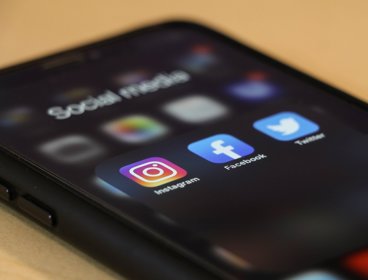By Matthew Blackett, Coventry University
The chances are that at sometime today you’ll have some sort of interaction with 'the media'. This may be listening to the radio over breakfast, reading the news on your commute or clicking a link as you scroll through your social profiles before bed. You’ve had this interaction and so do millions of others. Now imagine this interaction consisted of commentary on your research, detailing the significance of findings you’ve made and the impact they are likely to have, or perhaps it consisted of you being asked your expert opinion on a contemporary geographical issue. In just a couple of minutes, you will have been heard by many people, seen your Twitter followers increase significantly and had your profile raised infinitesimally more than it ever would have been by being confined to an academic journal.
I don’t think anyone could argue with the fact that working with the media is great for raising one’s profile in the 'real world'.
So how might you go about being approached by the media?
Well, there’s a bit of a catch-22 situation here in that you won’t be approached unless you have some sort of profile – the very one that the media will help you raise. So if you think you’d like to work with the media, you should do all you can to get your research and expertise 'out there'. Make sure to Tweet regularly about your research and opinions, particularly when a topic is trending that has relevance (even vaguely) to your work; try also to engage in conversations where you have the expertise. Ensure you have an up-to-date and outward facing online presence, whether through your institution’s webpages or your own (or both) and, if possible, liaise with your institution’s media department so that they know you exist and can push you and your work at any opportune moment and get known by the Society.
Once contacted, however, here is a word of advice: do not be drawn into answering questions that you do not know the answers to or that you are uncomfortable answering, or into agreeing with opinions that you do not agree with! This is unlikely to happen as you’ve been called upon for expert comment – the media needs you at this moment and the interviewers will, by and large, be nice to you – but do be careful.
One of my earliest experiences of working with the media came in 2011, when I was approached by the local BBC radio station to discuss the earthquake, and associated damage, experienced in Christchurch, New Zealand. I was an early career academic at the time and was terrified at the prospect, but the presenters put me at ease, told me what they’d like to discuss beforehand and overall it went very well. I had been found because the radio station had contacted my institution to ask if anyone could comment. Since then I have been contacted for comment, interpretation and opinion in relation to natural hazards events globally. Over the years, I found myself on various breakfast television couches and at a range of broadcasting stations and even today, the relationship I have developed with the media continues.
My experiences with the media have always been positive but here are some tips to be selected by the media and/or for working with them:
Do
-
Have an outward facing profile detailing your research and expertise in keywords
-
Liaise with your media department and the Society's press office
-
Use Twitter (and other platforms) to make your research and opinions known
-
Take some media training (often offered by your institution)
-
Ask for an idea of the question you might be asked
Don't
-
Worry if you can’t answer a question – simply say you don’t know
-
If on television, wear clothes that are busy or likely to distract viewers
-
Partake in an interview in a location where you might be distracted
-
Be drawn into giving opinions on issues you do not feel comfortable about
-
Be scared – treat the interaction as an informal chat and forget the viewers / listeners
Like it or loathe it, the media is central to many facets of today’s society; it informs and influences, entertains and educates. And, given that the media is so prominent in today’s digital environment, by working with it, researchers and academics can significantly raise their profile, and that of their work, far beyond the usual reach of the academy.
Go on, get out there and give it a try – you’re unlikely to be paid for your work but the experience is fun and rewarding and can add a new dimension to your career.
How to cite
Blackett, M. (2023) Working with the media. Communicating research beyond the academy. Royal Geographical Society (with IBG) Guide. Available at: https://doi.org/10.55203/YSGT4868
About this guide
There’s a long tradition of geographers communicating research ‘beyond the academy’ - to policy, to publics, to young people, to school teachers - whether to recruit students, for career development, critical praxis and activism, or requirements of funders to document ‘impact’. Ten years ago we published the Communicating Geographical Research Beyond the Academy guide. It sought to bring together and share collective experience and learning, from within and beyond the academy. Today, there’s ever more opportunities and modes and media with which to do this. While many of the points made – about audience, about access, about brevity and the use of plain English – still stand, this collection covers these already familiar issues as well as bringing new perspectives to encourage readers to reflect on motives, means and methods and to illuminate examples of good practice.




